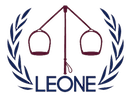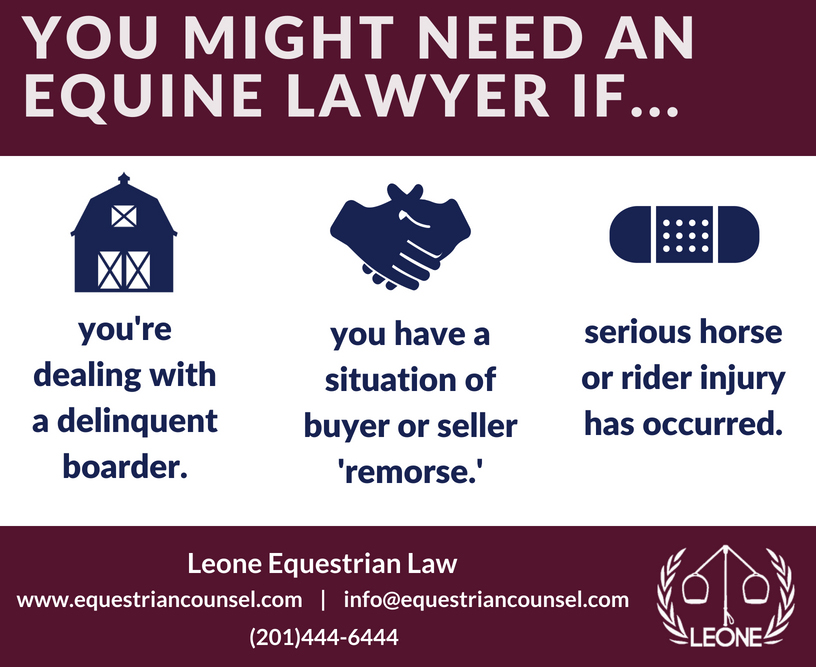Armand Leone is an attorney by trade and no stranger to the court room, but when he leased a horse in 2012 that became injured, he was involved in a lengthy and expensive arbitration for which he hired a lawyer. After giving endless “horses 101” lessons to his counsel before any progress could be made on his case, Leone realized there was an opportunity for him to help his fellow horsemen. As a result, Leone Equestrian Law was born in 2014.
Leone operates his business on a simple principle: horses are unique. According to him, the way horses are bought, sold, and leased is a process unlike any other seen in contemporary society. “Paying to educate an attorney about the horse business is not a cost effective way to resolve legal matters,” he says.
While the scenarios are endless, Leone has encountered common legal matters that affect people within the equine industry. The bad news: problems ranging from unpaid client bills to lease agreements gone wrong are common within professional circles of the horse world. The good news: you don’t have to go it alone; there is help out there.
If you find yourself in one of the following three scenarios, it’s time to call an equine lawyer:
Buyer / Seller Remorse
Owning, leasing, and selling competitive sport horses is a risky business. Even after all the ‘T’s have been crossed and ‘I’s have been dotted, things can go wrong for buyer, seller, trainer or all three.
Good Rules to Follow:
- Be transparent in your bill of sale or lease agreements, noting any lameness issue or special circumstances.
- Never overlook the need for a qualified veterinarian and trainer consultations to help you in selecting a horse.
- Always offer the buyer or lessor the opportunity to get an independent veterinarian examination prior to completing the transaction.
- Arrange a trial period with the horse if reasonable.
But, even after the most diligent efforts, people may claim after the sale or lease based on alleged non-disclosures related to soundness, suitability, or something else. If it happens to you, an equine lawyer can help.
The Delinquent Boarder
As any horse owner knows all too well, maintaining a horse in proper condition, whether riding for pleasure or more competitively, is undeniably costly. In turn, barn owners, trainers, and providers of veterinary services often deal with the daunting unpaid bill. Efforts like a mandatory boarding contract and published price sheet can often ward off a possible non-payment situation. But, if saddled with a client’s debt, barn owners often need help to get paid what is rightfully owed.
Riding Injuries
Horseback riding is a contact sport with frequent injuries and rare fatalities. Most states have special legal protections for equestrian businesses that can shield owners and businesses from lawsuits for personal injuries. However, there are exceptions to this protection that may create liability for an equestrian facility owner. Litigation can be costly if there is no insurance to cover the legal costs and loss. Even if there is insurance available, experience in equestrian sport makes a difference in asserting and defending claims. Riders, trainers, and owners can unfortunately all find themselves in court over a tragic situation.
If you are in a situation where serious horse-related injury or death has occurred, you should consult with an equine lawyer.

